
Commentaries | Dec 21,2019
Nov 9 , 2019
By
One of the world’s fastest-growing economies, India is basking in the glory of its native son Abhijit Banarjee sharing the 2019 Nobel Prize for Economics. Banarjee is the second Indian after the illustrious international economist Amartya Sen to win the coveted award.
Unfortunately, both gentlemen are non-resident Indians who have studied at the Ivy Leagues in the US and experimented on Indian economics with their “pro forma” involvement. So, the Indian economy for both Nobel laureates is a mere laboratory to routinely hypothesise, propound and test their theories.
Huge debates are raging in India on their contribution to the Indian state. These debates are sharp, because both these gentlemen are not only seen to be ideologically apart from the current right-wing Indian government, but also time and again, they have published views criticising government policies. Additionally, both Sen and Banarjee have lent their “economic thinking” to the erstwhile Congress Party, which repeatedly failed the Indian nation in alleviating poverty, hunger and endemic corruption. The latest contribution of Banarjee was to the Congress election manifesto in designing a social welfare scheme known as “NYAY” meaning justice during the federal elections in May 2019. The Congress received such drubbing in the election that the grand old party today is suffering from an existential crisis.
Nevertheless, every economist has his own cheerleaders and given the diversity of India, irrespective of their contribution to Indian society, these laureates will always find supporters.
An Indian winning a Nobel Prize always fires a debate - if a country can produce such international luminaries, why is the country not benefiting from their research and theories?
The Global Hunger Index 2019 has ranked India at 102 out of 117 countries behind Pakistan, Guinea Bissau and Niger and just above Sudan, Madagascar and the Central African Republic. Given that India is the world’s largest producer of the majority of food grains, sugar, milk and certain fruits and pulses, which constitute the day-to-day meal of the common man and that despite floods and droughts, India generally has “problems of plenty”, no Indian should go hungry. Likewise, the 2019 UN index of Human Happiness ranks India 140 out of 156 countries just ahead of South Sudan, Yemen and Afghanistan but below the Democratic Republic of Congo, Mali and Burkina Faso.
Despite the cultural diversity and spiritual belongings emanating from religious contentment, the average Indian is unhappy.
Hunger and happiness can never go hand in hand. A hungry soul contributes negatively to both his personal growth as well as that of the nation. Malnutrition, which is rampant in India, is a byproduct of a problem of plenty.
Highlighting Indian societal evils is not the purpose of this report. Debates need to focus on finding long-term solutions to the evils. A country with a population of 1.3 billion definitely has the wherewithal to identify and resolve known evils.
The present government has launched a number of social schemes directed toward the target audience, and they are bearing fruit in some geopolitical pockets. However, let us understand that since 1991, India has successfully moved away from past socialistic economics to capitalist economics.
Individual entrepreneurship is driving the economy to great heights, and there is no stoppage to this phenomenon despite monthly bankruptcies of banks and corporations. However, the transition has widened the societal inequalities. A World Economic Forum article recently quoted the India Human Development survey, which ranked India as one of the most unequal countries in the world. A Credit Suisse report says one percent of the rich in India own 53pc of the country’s wealth. The richest five percent own 68.6pc.
No wonder such a situation on the ground is a perfect laboratory for the Indian intellectuals educated in the American Ivy Leagues to propound and test their experimental and at times radical theories, which are impractical for alleviating poverty.
There is no evidence to suggest that both Indian Nobel laureates Sen and Banarjee have any practical, result-oriented solution for reducing poverty and inequality in India.
Against this background, the 2019 Nobel Peace Prize given to Abiy Ahmed (PhD), the Prime Minister of Ethiopia, is a welcome development not just for Ethiopia and its diverse ethnic community but for the whole region comprising the Horn of Africa. The Prime Minister has in a relatively small time-frame of his governance created “hope and peace” through his reformist agenda and diplomacy. There are reasons to believe that this hope and peace will lead to far reaching economic changes and create opportunities for both Ethiopians and their brothers across the border.
There is a possibility of a single marketplace emerging out of Ethiopia, Eritrea, Djibouti and Somalia that can serve a combined population of 133 million, thereby reducing their dependence on foreign markets. One can only expect the Nobel Prize winner will be encouraged to work harder toward economic prosperity and peace in the region.
PUBLISHED ON
Nov 09,2019 [ VOL
20 , NO
1019]

Commentaries | Dec 21,2019

Sponsored Contents | Mar 28,2022
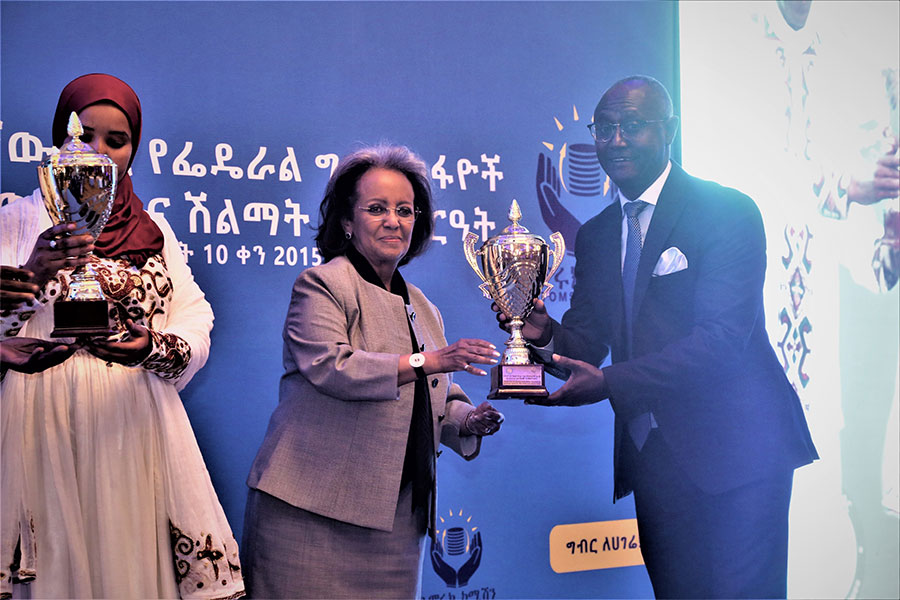
Radar | Oct 22,2022
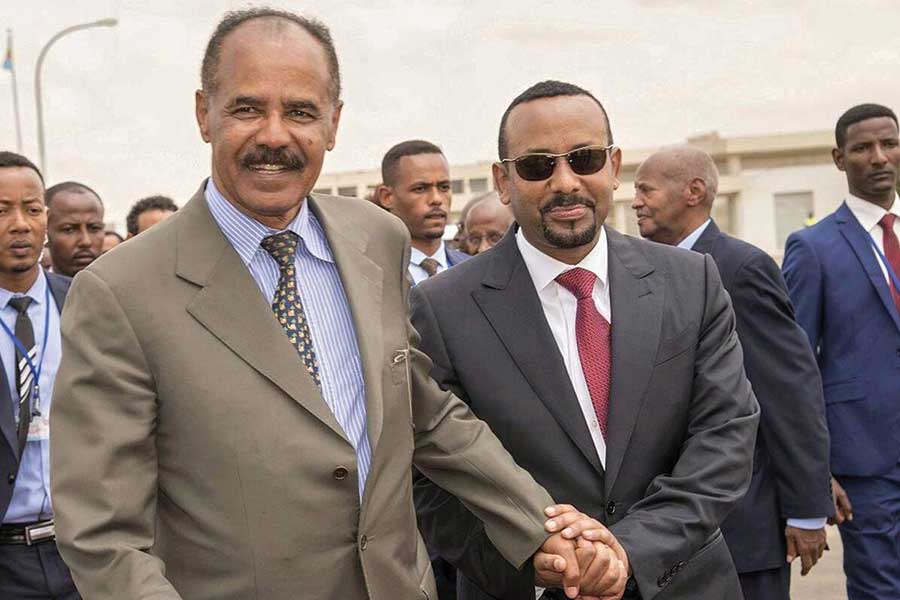
Fortune News | Oct 12,2019

Fortune News | Jan 18,2020
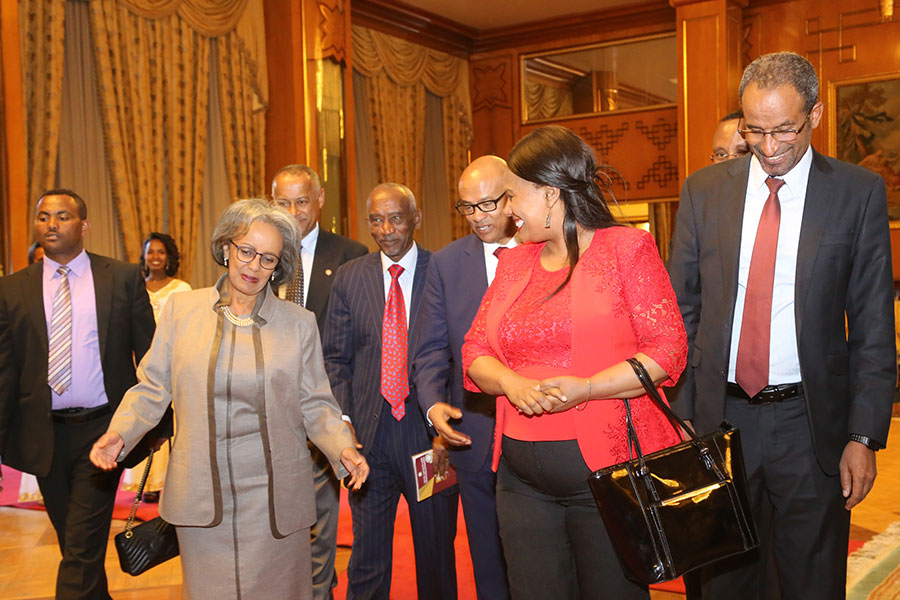
In-Picture | Jan 12,2019
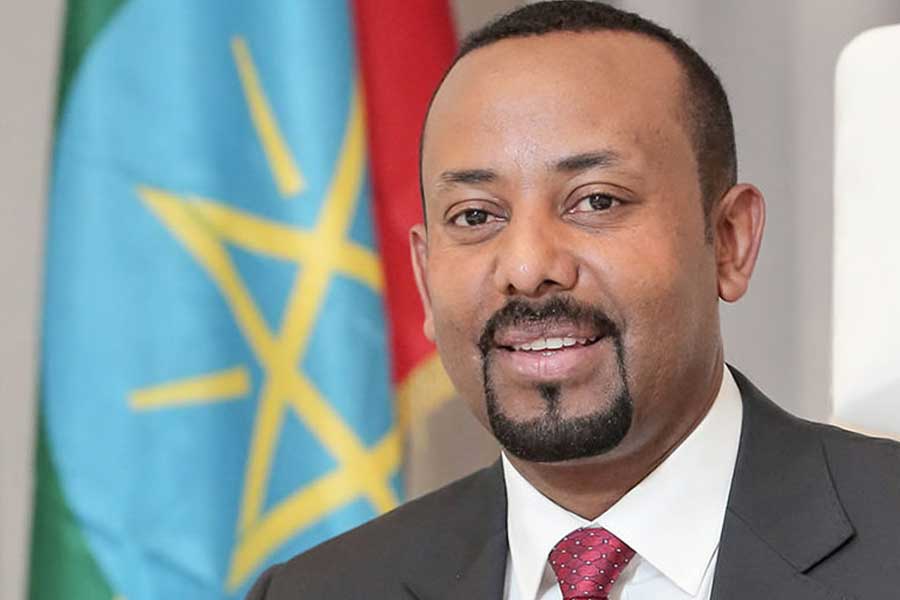
Fortune News | Oct 12,2019

Viewpoints | Nov 25,2023

My Opinion | Mar 23,2024
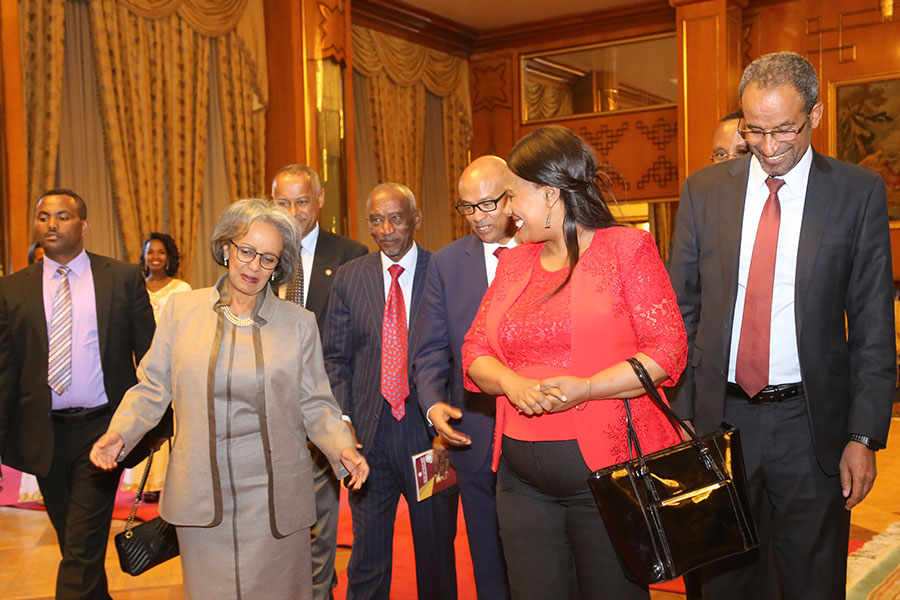
Radar | Jan 12,2019

My Opinion | 131981 Views | Aug 14,2021

My Opinion | 128369 Views | Aug 21,2021

My Opinion | 126307 Views | Sep 10,2021

My Opinion | 123925 Views | Aug 07,2021

Dec 22 , 2024 . By TIZITA SHEWAFERAW
Charged with transforming colossal state-owned enterprises into modern and competitiv...

Aug 18 , 2024 . By AKSAH ITALO
Although predictable Yonas Zerihun's job in the ride-hailing service is not immune to...

Jul 28 , 2024 . By TIZITA SHEWAFERAW
Unhabitual, perhaps too many, Samuel Gebreyohannes, 38, used to occasionally enjoy a couple of beers at breakfast. However, he recently swit...

Jul 13 , 2024 . By AKSAH ITALO
Investors who rely on tractors, trucks, and field vehicles for commuting, transporting commodities, and f...

Jul 5 , 2025
Six years ago, Ethiopia was the darling of international liberal commentators. A year...

Jun 28 , 2025
Meseret Damtie, the assertive auditor general, has never been shy about naming names...

Jun 21 , 2025
A well-worn adage says, “Budget is not destiny, but it is direction.” Examining t...

Jun 14 , 2025
Yet again, the Horn of Africa is bracing for trouble. A region already frayed by wars...

Jul 6 , 2025 . By BEZAWIT HULUAGER
The federal legislature gave Prime Minister Abiy Ahmed (PhD) what he wanted: a 1.9 tr...

Jul 6 , 2025 . By YITBAREK GETACHEW
In a city rising skyward at breakneck speed, a reckoning has arrived. Authorities in...

Jul 6 , 2025 . By NAHOM AYELE
A landmark directive from the Ministry of Finance signals a paradigm shift in the cou...

Jul 6 , 2025 . By NAHOM AYELE
Awash Bank has announced plans to establish a dedicated investment banking subsidiary...